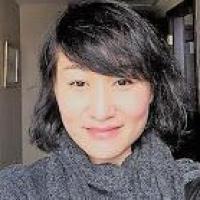
Qian Zhu
Duke Kunshan University
Biography
Qian Zhu is a historian of modern China and a theorist of everyday life. She obtained PhD in History from New York University. Her research is on the intellectual history of China since the late 19th century onwards. Her book investigates the conceptualization of everyday life and the China’s leftist movement in the first half of the 20th century, which concludes with the Chinese anti-fascist global alliance in Southeast Asia during the Pacific War. Beyond her specific field of modern China, she is working through feminism and gender, cultural politics, the theory of everyday life, urban studies and labor history. Her second book project in particular looks into the question of the urban and the rural and the residential housing for workers in the first half of the 20th century.
「 Exile to the Equator: Chinese Anti-Colonialism in Southeast Asia in the WWII 」
Historical research of Chinese anti-colonialism have focused upon nationalism, state-party anti-colonial militarism, and, less often, local military resistances in China against Euro-Americans, Russians, and Japanese since the Opium War in the mid-19th century. As a part of the WWII global history, Chinese anti-colonial history has been studied around the themes of national and local military campaigns against Japanese with the British and American support, and the anti-colonial social movements and cultural activisms in the Chinese territory.
This paper investigates two journalistic writings of the Chinese prominent intellectuals, Hu Yuzhi and Shen Zijiu, first published in 1946 in Singapore and then in 1985 in Shanghai in a collection of essays, Exile to the Equator (liuwang zai chidaoxianshang). In their writings, Hu and Shen detailed their experiences of exile and anti-colonial collectivism and activisms with the local Chinese communities in Singapore, Malaysia, Sumatra, and Indonesia from 1941–1945. While documenting the indigenous people’s exploited lives and the region’s specialization of productions under the Dutch, British, and Japanese colonial governance, Hu and Shen conceptualized “south sea” (Nanyang) and “the equator” (chidao) as the center and the frontier of global anti-colonial alliance, which served as the determinant factor for the anti-Japanese war in Asia and in China. The geopolitical configuration of Southeast Asia by the Chinese anti-colonial activists suggests a new form of and a different history of Chinese anti-colonialism, which moves beyond the binaries of the center and the periphery and beyond the agency of state-party in framing the WWII historical narratives.



